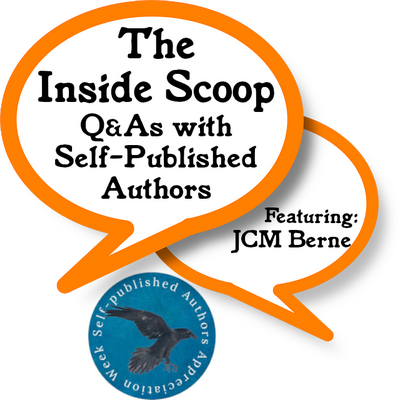
I’ve talked about him all week, and now it’s time to hear from the man himself, JCM Berne. Without his help, there’d have been a lot less for you to read and me to post this week. And as anyone who has read his fiction, watched his Youtube videos, or has interacted with him in any way will expect, this particular entry in the series is as fun to read as it is useful and informative. Without further ado:
Before we get into things, why don’t you give the reader a brief introduction to you and your work.
I am JCM Berne. I write superhero stories. For grownups. No, they’re not silly. No, they’re not deconstructions. Or anti-heroes. Or gritty. Or hyper violent. Yes, they’re for grownups, I said that already. Yes, I’m serious. Yes there are bears, and sentient space stations, and giant bug monsters. No, really, none of it is silly.
It’s a story about regret and redemption, humor and happiness, coffee and donuts. Some people call it slice-of-life, but there are some war crimes and mass murders, so it’s not exactly cozy fantasy.
My website: jcmberne.com (shocking, I know!)
My books can be found at: https://a.co/d/5LoNrHZ
Best place to talk to me is twitter (my DMs are open!): @joeberne1
What are some of the biggest misconceptions you find that readers have about self-published books?
I’ll summarize it like this: people know that in, say, fantasy, Tor, Baen, Orbit, and whoever else you consider the ‘real’ publishers are releasing a certain number of books each month. People imagine that those companies are actually getting the BEST books. That if those companies release 50 books, the BEST indie book that month is, at most, the 51st best book being released globally.
That is incredibly far from the truth. The major publishers are finding, at best, a fraction of the best books according to their own editorial taste.
If your taste doesn’t exactly align with the Tor (or Orbit or Baen) staff (and it probably doesn’t), the BEST book for you that month might be one that those companies have all passed over. Maybe you want something more original. Or less original! Or litRPG. Or a non-ironic superhero story! The big companies are only releasing books in a very narrow window of genre and style.
Additionally, the process of getting a book through slush piles and into an editor’s hands is so onerous and so luck-dependent that there’s a good chance the best book in any given month was never even looked at by an agent, let alone an acquiring editor at Tor.
If you can find review outlets that you trust, you might find that THEY find better books than Tor can ever manage.
The second set of misconceptions is that self-published books are low quality – more typos, ugly covers, poor editing, etc. This is absolutely true some of the time, but it’s not hard to find self-published books of higher objective quality than trades. It just varies more (the worst self-published books are much, much lower quality, because there’s no gatekeeping at all).
What kind of costs are associated with self-publishing a book? Do you hire one or more editors, or one editor for a couple of passes? Cover artist? Anyone to help with layout, design, etc.? Beta readers? Or do you take it all on yourself? Are you actually making any money at this, or are you still focused on breaking-even while building an audience?
Cover: as low as $50 – but you’d have to be very lucky to find one that cheap that matches your book and still looks decent. Really good covers are very findable in the $1000 range. I spend over $4k on mine (which is probably a really poor investment, but I’m not a smart businessperson).
Editing: Varies. Most self-published authors writing GOOD books are hiring a line editor and copy editor and getting some developmental editing done (I am an exception, I don’t use developmental editors, because I’m just that arrogant). Minimum $1000 for a book and usually closer to $2-4k.
Layout and design – some people hire this out, but there’s software like Atticus ($100 lifetime purchase) that make it really easy to do.
Beta readers – people do hire beta readers, who cost a lot less than editors (usually under $100 for a beta read). Hiring beta readers is a lot less common than just trading with other writers.
Audio narrator: some people do this themselves, but a good audio narrator is around $200+ per finished hour. My book, for example, was about 13 hours. You can go higher.
Marketing: That’s the open-ended part. Blog tours, ads on amazon, newsletters, etc. You can spend absolutely any amount.
I am not making any money at this. Some indie authors are. Some support themselves doing this – more often those in high volume genres, like romance. I hear about indie authors hitting seven figure incomes (I assume that’s US dollars, not rupees or anything). I personally am eager to one day come close to recouping what I’ve already spent (nowhere near it).
Are there tools, mentors, websites you’ve found to help you through this process? Or did you stumble through blindly on your own?
I figured out a lot of it myself. I had early mentors in Ande Li and Maurice Alvarez, who I talked to because they’re friends in real life who had been publishing books for a while!
Once I got a foothold in the community, I got a LOT more help from authors on various Discord servers. I’ve found self published authors very willing to share advice and strategies. It’s a bizarrely supportive community.
How do you juggle marketing/PR/etc. with writing new work? (along with day jobs, family, hobbies, etc., etc.)
I keep telling myself it’s cheaper, and less time consuming, than a drug addiction. Not sure it’s true, but that’s what I tell myself. (that’s the second time someone’s said that—or words to that effect—today. I’m not sure if that’s a good or a bad sign that multiple people think this way)
What made you decide that self-publishing was the direction you wanted to go? How often do you question that choice? How do you get through the self-doubt?
Honestly, I spent a small amount of time trying to find agents that might be interested in my book and got nowhere. It’s possible that some are out there and I just couldn’t find them. Believe me, if I thought I could have gotten a contract from Tor, I would have. I also feel my particular book doesn’t pitch well. I’ve never been able to come up with a brief (1 sentence) description that sounded anything other than a bit dumb. My strength obviously isn’t marketing!
I almost never question that choice, in the sense that to this day I still can’t come up with a good pitch for my book, and I don’t think there’s a route to a traditional contract that would have ever worked for me.
If I had held out for that, I’d be waiting still, and I wouldn’t have the readers I have, who I treasure.
Have you thought about trying to get a deal with major (or indie) publishers for upcoming works, or are you planning on sticking with self-publishing?
I have an independent book coming soon that pitches well (Taken, if it starred Michelle Yeoh and was set on Cradle – a retired monster hunter wrecks a continent when her children are kidnapped.) I tried to get a deal and failed. I’m not sure the patience for that anymore – especially when I’m in a position where I can get literally hundreds of people to read my next book with a few tweets.
Odds are, you’re doing this from love/passion, not to pay the bills. What keeps you going? I’m assuming there are more “who”s than “what”s, actually—who is it?
It creates plenty of bills… not paying any of them yet! While I do dream of making a profit at some point, I’m pretty happy with what’s going on right now.
I love to tell stories. I love crafting them, the slow reveal, figuring out ways to change the emotional impact. I constantly make up stories, even if it’s just in my own head.
Writing is, for me, incredibly fulfilling for that reason!
I tell people this: if you don’t have to write, don’t. It’s frustrating, time consuming, and difficult. If you aren’t driven to do it, don’t punish yourself! But if you’re compelled to write, then by all means, become an author. Just don’t quit your day job!
Self-publishing tends to have fewer external deadlines keeping one accountable. How do you maintain your work process or work ethic?
I have a system.
I book slots with my line editor, who usually fills her schedule 4-6 months in advance. Then I am forced to finish my books to get them to her.
Because I love my line editor (she makes my books more authentically mine than I can manage on my own), I am deeply afraid of disappointing her, so it works!
I do not recommend this system. Do as I say, not as I do.
If you were to start the process over with the experience you have now, what would you do differently?
I would probably write a different genre. Superheroes are a tough sell, much tougher than I expected, and getting readers to take my books seriously is hard (I’m surprised you read it, HC, given what you generally review) [Really? I loves me some good super-hero stuff, I need to do better at talking about that]. On the other hand, this genre is what I really love, so maybe I’d have decided to go with it regardless, and just had lowered expectations.
Maybe that’s what I’d do differently: moderate my expectations.
How do you decide a book is finally finished and ready? (or how do you avoid “perfection as the enemy of good”?)
This is the tricky thing!
I set a deadline – usually announcing things on twitter, or booking a slot with my line editor – and just try to get it as good as it can get before then. But you have to couple that sort of process with a willingness to bail (and eat the editorial cost, or kill some of the buzz you’ve generated) if the product you have really isn’t up to par.
So far, I haven’t done that. It helps that my goal is a really fulfilling series, not a really fulfilling book, and I remind myself that every series has some subpar entries. But really it just takes an enormous amount of confidence, earned or not, to release a book, and you just have to do it.
Thanks for your time and participation! Hope you enjoyed it! And do know that there are many of us out here who appreciate and applaud what you do (and our number is growing)!
Thank YOU so much! Reviewers and influencers are all that stand between relative obscurity and complete obscurity for us authors! (Sorry, I wrote that sentence wrong, then read what it said, and it’s too funny for me to fix). Writing is inherently communicative. Having readers who really understand what I was trying to do in my books is what makes writing them worthwhile, and to be honest, I only KNOW they ‘got’ the meaning when I can read an actual review. Not that a buy or a star rating aren’t great – they are – but it doesn’t mean as much.
Be sure to give The Hybrid Helix (and anything else Berne puts out) a try!
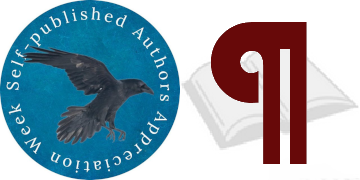
Clker-Free-Vector-Images from Pixabay
The 2023 Self-Published Authors Appreciation Week Logo was made by Witty and Sarcastic Book Club
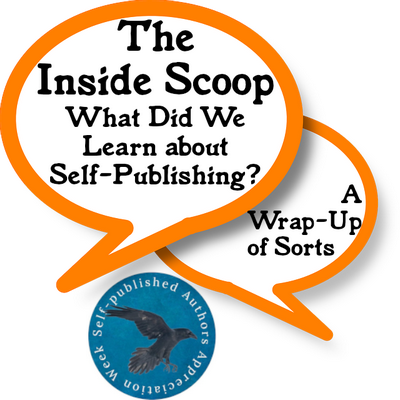
 The biggest lesson I took away from this was that next time I do something on this or a similar scale, I really need to start putting the posts together much earlier than I did (and I did start early).
The biggest lesson I took away from this was that next time I do something on this or a similar scale, I really need to start putting the posts together much earlier than I did (and I did start early). Self-published authors want attention for their books (not unlike small-press or Big 5 authors, but more so). Not in a needy sense, or a “hey, look at meeeeee!” kind of way. But it is so hard to get anyone to see their books in the deluge of works published out there (2.3 million in 2021, for example), they will do a lot to put their name and books in front of a few eyeballs. We should all talk to people about their books in real life and online whenever we can—whether that’s what your online site/social media is about or not.
Self-published authors want attention for their books (not unlike small-press or Big 5 authors, but more so). Not in a needy sense, or a “hey, look at meeeeee!” kind of way. But it is so hard to get anyone to see their books in the deluge of works published out there (2.3 million in 2021, for example), they will do a lot to put their name and books in front of a few eyeballs. We should all talk to people about their books in real life and online whenever we can—whether that’s what your online site/social media is about or not. The costs involved in putting out a good-looking book are significant. I’ve tried to be better about buying copies of self-published books I’ve been given to review. I’m going to get better about it. And they should all ask for more money for their books.
The costs involved in putting out a good-looking book are significant. I’ve tried to be better about buying copies of self-published books I’ve been given to review. I’m going to get better about it. And they should all ask for more money for their books. The term “self-published” is a big misnomer. The number of artists, editors, and whatnot involved varies from “self” to “self,” but no one is alone in this thing.
The term “self-published” is a big misnomer. The number of artists, editors, and whatnot involved varies from “self” to “self,” but no one is alone in this thing. Most of these authors are uncomfortable with and/or don’t have time to do the marketing they should. Share/retweet/like/whatever their posts when you see them on various and sundry social medias.
Most of these authors are uncomfortable with and/or don’t have time to do the marketing they should. Share/retweet/like/whatever their posts when you see them on various and sundry social medias. Their market really is international more and more. Which is just cool to see.
Their market really is international more and more. Which is just cool to see. Most of these authors like the autonomy/freedom/etc. given by self-publishing and wouldn’t want to get into the traditional publishing game. 20 years ago, I doubt anyone would’ve imagined that.
Most of these authors like the autonomy/freedom/etc. given by self-publishing and wouldn’t want to get into the traditional publishing game. 20 years ago, I doubt anyone would’ve imagined that. These authors are highly self-motivated—but still, many of them have found ways to ensure they stay as productive as they want to.
These authors are highly self-motivated—but still, many of them have found ways to ensure they stay as productive as they want to. Mistakes and missteps are the best teachers out there. But advice and guidance from the community come in a close second—and it seems like everyone’s ready and eager to help others out.
Mistakes and missteps are the best teachers out there. But advice and guidance from the community come in a close second—and it seems like everyone’s ready and eager to help others out. These people care about their work, they put blood, sweat, and tears into putting the best things out there they can.
These people care about their work, they put blood, sweat, and tears into putting the best things out there they can. It’s been a long time since “vanity publishing” has applied to the majority of self-publishing. Readers as a whole need to get over that idea and recognize the quality of much of what’s being self-published today (I know too many hold on to the idea). But still, there are those hitting “publish” a little too early and should spend a little more time/money on their efforts.
It’s been a long time since “vanity publishing” has applied to the majority of self-publishing. Readers as a whole need to get over that idea and recognize the quality of much of what’s being self-published today (I know too many hold on to the idea). But still, there are those hitting “publish” a little too early and should spend a little more time/money on their efforts. Along those lines, everybody judges books by their cover. Put in the effort to get something that looks good—the insides should look good, too, while we’re at it. You could be the next Hemingway or Atwood, but few will know that if it looks like your put your cover together with Microsoft Word.
Along those lines, everybody judges books by their cover. Put in the effort to get something that looks good—the insides should look good, too, while we’re at it. You could be the next Hemingway or Atwood, but few will know that if it looks like your put your cover together with Microsoft Word.


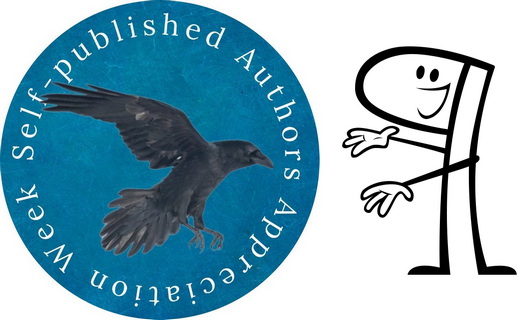
 Cause and Effect: Vice Plagues the City
Cause and Effect: Vice Plagues the City 
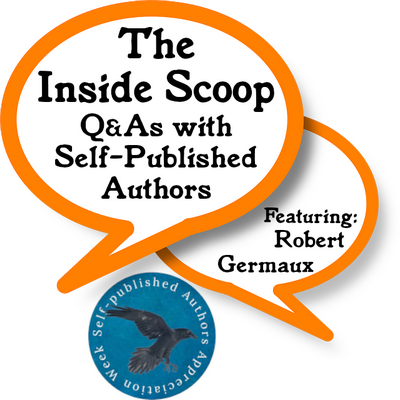
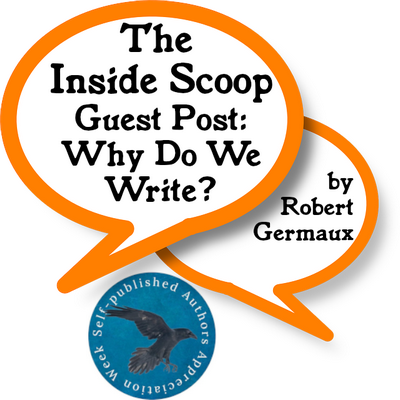 Robert Germaux has always been game for anything I’ve asked him if he wanted to do–which is great, because I’ve always appreciated whatever he produces. Better than the things he’s done with me are the books that he’s provided for me and/or I’ve purchased. Like this post, for example, which is a revised version of something that appeared in one of his books and on this site a few years ago. He’ll be back for the Self-Publishing Q&A here in a few.
Robert Germaux has always been game for anything I’ve asked him if he wanted to do–which is great, because I’ve always appreciated whatever he produces. Better than the things he’s done with me are the books that he’s provided for me and/or I’ve purchased. Like this post, for example, which is a revised version of something that appeared in one of his books and on this site a few years ago. He’ll be back for the Self-Publishing Q&A here in a few.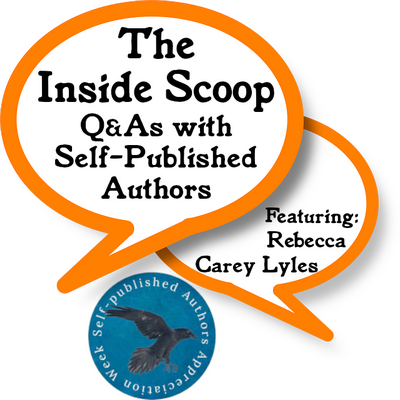
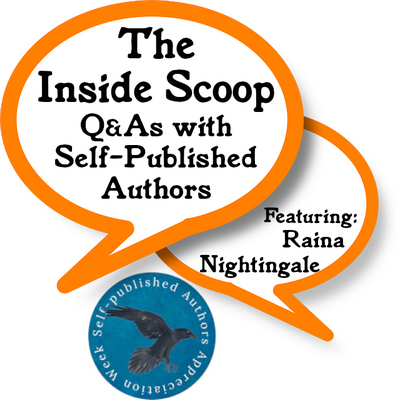
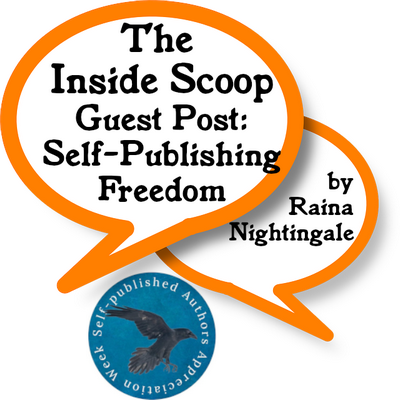 One of the first things that Raina Nightingale said to me was that she wanted to do a Guest Post about the freedom of self-publishing. This sounded perfect to me, that freedom is one of those things that defines self-publishing to me. I’ll be posting the Self-Publishing Q&A with Nightengale a little later this morning, be sure to come back for that.
One of the first things that Raina Nightingale said to me was that she wanted to do a Guest Post about the freedom of self-publishing. This sounded perfect to me, that freedom is one of those things that defines self-publishing to me. I’ll be posting the Self-Publishing Q&A with Nightengale a little later this morning, be sure to come back for that.